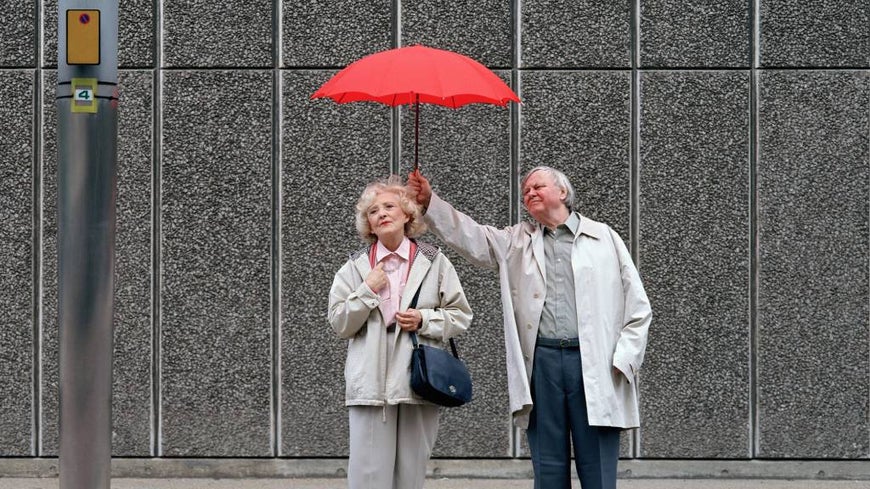The civil war

Written by Stephen Corby for Australian Seniors
Does the world seem less civil of late? Perhaps you’ve seen incidents of public rudeness – people screeching at supermarket staff, fighting with flight attendants, bullying bus drivers – but if not, you’ve surely seen the signs in shops: “Our staff deserve to work in a respectful environment without abuse or violent behaviour.”
This degradation of social niceties may have begun when people started fighting over toilet paper and doesn’t seem to have reverted to normality since. Indeed, according to Dr Steven Zech from the politics department at Monash University, “We seem to have forgotten how to behave.”
Have we all gone mad?
So, has the world gone mad or are people just madder, and why has this happened? Dr Zech and his colleague, Dr Matteo Bonotti, set out to academically analyse civility and its effects on democracy just before the pandemic hit, which turned out to be incredible timing. The two have now published a book, Recovering Civility During COVID-19.
“The pandemic has called into question previous norms of politeness that were widely recognised, making it more difficult for people to know how to behave politely in different circumstances,” Dr Zech explains.
“First, we had to find new ways to be polite – you can’t show someone you’re smiling with a mask on, it was no longer OK to embrace people or even to shake hands, there were new layers of complexity to physical distance in public places.”
“Even simple gestures like holding a door open for strangers or delaying a lift to allow for another passenger are no longer straightforward acts of politeness.”
Dr Zech says academics break civility down into two separate components, both of which have been rattled in recent years. The first is simply ‘politeness’, which are the codes of conduct and norms that guide our interactions with the people we have to live amongst.
The second element of civility is our ‘public mindedness’, our willingness to do things, or not do them, for the sake of the public good. Vaccinations are a good example of this.
Forgotten manners
During extended lockdowns, many elements of civility were forgotten, but Dr Zech points out that some of the rude behaviour seen today is intentional. “Maybe it’s pent-up rage, this response to the external limitations we’ve had on our behaviours.”
What may not have helped is how much time people have spent on the internet, a place where civility seems almost non-existent, and outbursts of rage are more acceptable.
The damage to people’s mental health is also a genuine concern, according to psychologist Dr Bernard Golden, the author of Overcoming Destructive Anger.
“We’re going through a time where, physiologically, people’s threat system is at a heightened level,” he says. “We don’t filter ourselves as much as we used to. On the internet, people feel like they can say anything. And they transfer that lack of filter into public life.”
Dr Zech says people tend to underplay the importance of civility in a functioning society. “We looked back over the decades and as we did, people were always saying, ‘people are so uncivil these days’, but it just reflects changing times. But it does seem that, as people come out of these long lockdowns, we’ve forgotten how to behave. We take for granted that we have this social etiquette that guides us in our everyday lives.
“These tools, sometimes they take practise, and some people have come out a little rusty. We’re learning to do all this again.”
3 tactics to deal with rudeness by Joe Hart, Organisational Psychologist
1. Listen, reflect, repeat
Sometimes, people can completely lose perspective. To help them regain it, simply listen to what they are saying, reflect back what you’ve heard and repeat this process until they answer, “yes, you’ve got it”.
By confirming that they are feeling understood, you can move into a more respectful dialogue with them.
2. Wait for an invitation
Humans find it difficult to ‘opt-out’ due to our fear of missing out. Use this when challenged with people who are not aware of the negative impact their behaviour is having.
By simply saying, “Would you like to know how your behaviour is affecting me right now?”, most people will answer, “Yes please,” inviting you to provide feedback.
3. Show compassion
We all have bad days, so when somebody is rude, try not to bite back. Instead, acknowledge that there is more to their story than you can possibly know. With that lens, you are better able to not get triggered by rude interactions.
Get the latest take on trending issues, smart tips to help boost your financial goals, or a fresh way to indulge in everyday joys, all from the comfort of your favourite reading spot with DARE magazine from Australian Seniors.
DARE also features exclusive stories from some of Australia’s favourite personalities.
12 Jan 2023